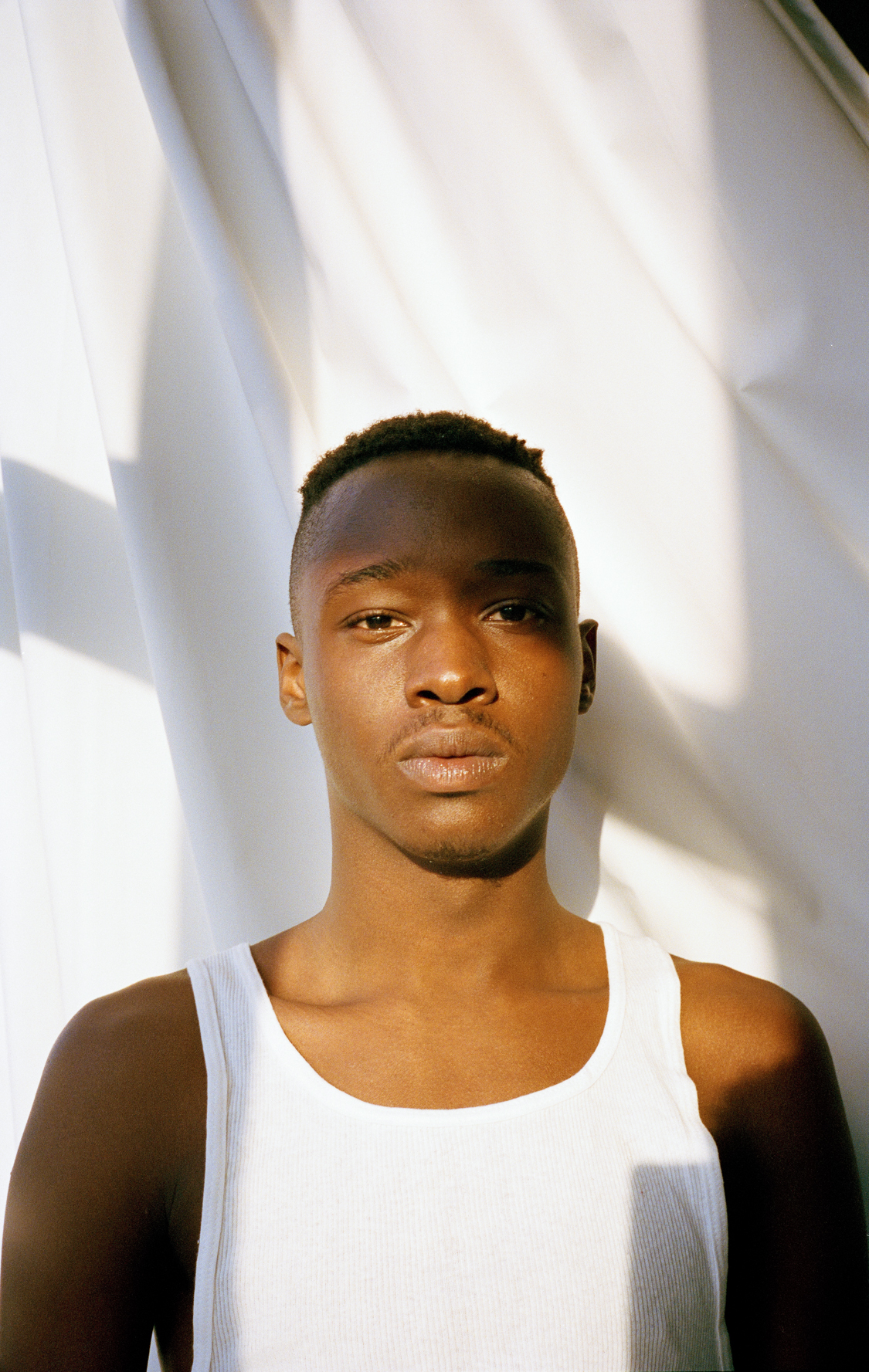OFFICE – A few weeks ago, you said you hadn’t met [Moonlight executive producer] Brad Pitt yet. Has it happened?
Ashton Sanders – No, I have not met Brad Pitt. [laughs] I know that he has a lot going on,I get it. But he did go to a screening in Los Angeles and Trevante and Barry were there, and they got to meet him. I’m like “Hey Brad, where you at Brad?” [laughs]
O – Moonlight is obviously massively acclaimed, and it’s basically been analyzed to death. But in your own words, what would you say that the movie is really about?
AS – I think that Moonlight is a radical depiction of modern day masculinity. I would say it’s a film that shows people a different side of life, and a film that hopefully makes people think about things in a different way. It’s very much a people’s film, a universal film. People leave the theater a different person. This film changes people—it’s just so human, and so real.
O – The film does such an incredible job of deconstructing masculinity. It’s broken down in such a way that you can see its toxic effects very clearly. What do you think the film is really saying about masculinity, about black masculinity in particular?
AS – That’s a major theme of the film. I think that we’ve been trained that things are either one way or the other. We’ve been trained to think that feminine looks like this and masculine looks like this, that gay looks like this and that straight looks like this. It’s within the black community, but in every community I feel like we walk around with these social masks that people wear to fit into a crowd. People are afraid to speak up because they’ve been belittled their entire lives, but realistically we’re all walking around with social masks. We’re all pretending to be something. This definitely is a film that kind of breaks that down, and that’s one of the reasons why I say that this film is changing lives. It’s changing mindsets, and people are walking away with a different way of thinking now.
O – In the wake of the election, what purpose do you think the film serves?
AS – I think that after the election, and just with everything going on in the world, Moonlight definitely still unifies people. It’s definitely shining a light on different perspectives and issues in the world, and a lot of people can take different things away from seeing it, especially right now. It’s so multi- layered, and it tackles so many different things.
O – What personal experiences helped you connect to Chiron?
AS – I was bullied from elementary school to middle school, and I also had family members in the early part of my life that were struggling with drug addiction. I kind of buried those memories in the back of my mind prior to shooting the film. So this film was actually kind of like therapy to me because it literally made me take those memories to apply to Chiron and expand on those memories. I mean, thankfully I didn’t have the exact same issues that Chiron had, or those heightened circumstances, but I did have to take what I was feeling when that happened to me and heighten those emotions up in order to really fully embody Chiron, which was very interesting. It was kind of like drug withdrawal after filming.
O – And how was filming in general? Because it’s such a wavy and emotional movie. How did it feel to wake up every morning and go to set?
AS – This is work and this is why I love to do my job, you know. I was just blessed to be able to portray this character, and to be able to work with everybody on set. Because it was such a sensitive topic, everybody came to set with love. We knew we were friends and that it was great vibes, but when it was work, it was serious work. We were a family. So it was an amazing, magical, passionate experience.
O – Speaking of being family, I read that Barry kept you and the other Chirons separate throughout all of filming. Is that true? Did you ever feel the urge to try to meet the actors?
AS – It wasn’t tempting to meet the other Chirons. All of their stories are so separate, so it was kind of easier, for me, to focus on my section. Having read the script I had known what happened to him prior to my Chiron. I did have to fill in the gap of what happened when he was eleven or twelve or thirteen. But honestly it allowed me to just focus on that section, and be as true to that section and to that moment in Chiron’s life as possible.
O – It’s an interesting acting exercise. Also, I know every single person who has written about the film has said this, but it’s really striking how similar all three of you are. It’s incredible, the performances. How do you think that happened, that you were all so connected?
AS - [laughs] Yo, I don’t know. That’s new and pretty mind- boggling to me. It is pretty extraordinary. I think that just comes with great direction and great writing and great listening as well. But it is honestly really crazy how that all worked out. I see this from a fan’s standpoint because it is pretty surreal. Like, I didn’t even think all of this would be happening, but it’s awesome.
